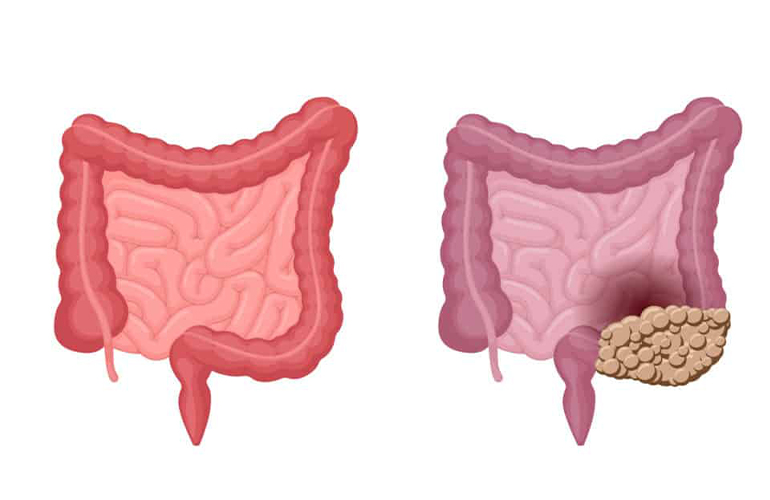
The large intestine, which is the last part of the digestive system that connects with the anus, is an organ with an average length of 1.5 to 2 meters. The large intestine consists of the colon and rectum. The part of the large intestine where the last 12-15 centimeters of stool is stored before the anus is called the rectum. The colon is the name given to other parts of the large intestine other than the rectum. It consists of the cecum, ascending colon, transverse colon, descending colon, and sigmoid colon. The nutrients that come from the small intestine in a highly digested state are stored in the rectum for removal through the anus, after the water and minerals are taken in the colon.
Cancer that occurs in any part of the large intestine is called colon cancer. If the cancer is localized in the rectum, it is called rectal cancer.
Colon cancer can be completely cured if diagnosed at an early stage. However, in cases where it cannot be diagnosed early, this type of cancer; It spreads to nearby lymph nodes, liver, spleen, and lungs via lymph and blood vessels.
What are Colon Cancer Symptoms?
The symptoms of bowel cancer are often manifested by changes in defecation habits.
The symptoms of colon cancer include persistent diarrhea or constipation, thinning of the stool, blood coming from the stool and the anus, and a secretion called egg white-like mucus in the stool. When the cancer progresses further, it causes partial or complete obstruction of the intestine and complaints such as swelling and pain and vomiting occur in the abdomen. Pain and difficulty in defecation, anemia due to iron deficiency, weight loss and mass formation in the abdomen are also findings related to colon cancer.
What are Colon Cancer Treatment Methods?
For the treatment of colon cancer, polyps that are likely to turn into cancer are removed by colonoscopy. If the cancer has reached an advanced stage, surgery becomes mandatory. The part with the tumor is removed along with all the surrounding lymph nodes. These procedures can be applied with open surgery, laparoscopic surgery or robotic surgery methods.

